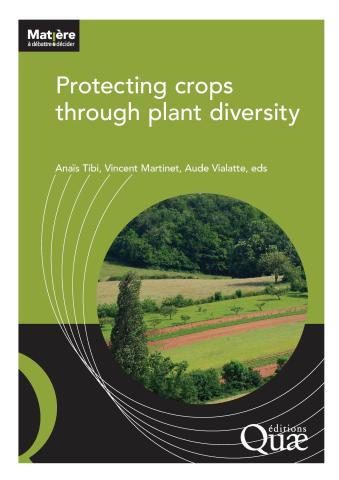Agroecology Reading time 1 min
Protecting crops through plant diversity
Published on 11 June 2024


The advent of synthetic fertilisers and pesticides freed farmers from yield-limiting environmental constraints while simplifying agricultural fields and landscapes. The environmental and health impacts of this dominant model, as well as its interrelationships with climate change and biodiversity loss, are now well established by the scientific community.
Although there is increasing societal demand for agriculture that meets food demand while respecting the environment and human health, the agro-ecological transition of cropping systems is insufficiently engaged. One of the reasons put forward for this inertia is the lack of effective alternatives to pesticides to protect crops.
This collective scientific assessment looks at crop protection strategies based on plant diversification in agricultural areas and analyses the obstacles and levers to their adoption by farmers. It is part of the Écophyto 2+ plan, which supports the production of knowledge and tools needed to reduce synthetic pesticide use.
This book is intended for teaching professionals, researchers, students, stakeholders in the agricultural world, land managers, environmental organisations and associations, and any citizen interested in such issues.
- Publisher: Éditions Quae
- Collection: Matière à débattre et décider
- Publication : 17 August 2023
The ebook versions in PDF or EPUB format can be downloaded free of charge from the publisher's website.
CASE steering: methodological and scientific coordination
- Anaïs Tibi is a research engineer at INRAE. She coordinates the production of multi-disciplinary knowledge reviews to inform public decision-making on issues at the crossroads between agriculture, food and the environment.
- Vincent Martinet is a research director at INRAE and Professor at the École normale supérieure Paris-Saclay. As an environmental and ecological economist, his research focuses on the sustainability of agriculture and the agroecological transition.
- Aude Vialatte is a research director at INRAE and Director of the Dynafor Laboratory in Toulouse. As a landscape agroecology scientist, she develops a systems approach to assessing and promoting the natural regulation of crop pests.
